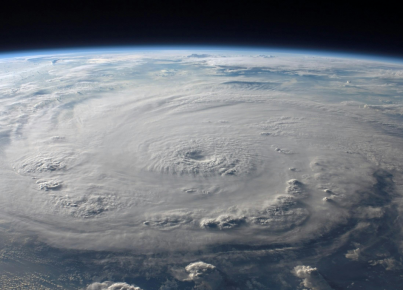The inauguration of new President Lai Ching-te in Taipei and the possible economic and political repercussions in Southeast Asia
By Luca Menghini
On May 20, Lai Ching-te will officially become the new President of Taiwan. This event is significant not only for the island but also for the geopolitical context of the entire Southeast Asia. Taiwan is indeed preparing for a significant change with the inauguration of a leader from the Democratic Progressive Party (DPP), known for its leanings towards the island's independence from China. Lai secured 40.1% of the votes, surpassing candidates from the Kuomintang (KMT) and the Taiwan People's Party (TPP). Despite the DPP's victory, the party lost control of the legislative assembly, forcing the new president to seek broader consensus which will lead him to moderate his more extreme policies.
The loss of the parliamentary majority could be seen by ASEAN as an element of stability, as it might mitigate Lai's policies, thus reducing tensions in the Taiwan Strait. This area is of vital strategic importance, being a crucial maritime corridor for global trade. ASEAN, which traditionally follows a policy of non-interference and consensus, reacted cautiously to Lai's election. The member countries, located in a region crossed by various trade routes and spheres of influence of major powers, strive to maintain a balance to avoid conflicts. The stability of the strait is essential not only for regional security but also for the global economy.
During the period leading up to the elections, tensions between Taiwan and China grew, especially during the presidency of Tsai Ing-wen, who sought to strengthen ties with the United States. China responded by increasing military and diplomatic pressure on the island, which it considers a rebel province to be reunified in the future. While the reaction of ASEAN and most of its member countries to Lai's election was generally subdued, with most countries avoiding taking strong public positions, the same cannot be said for Filipino President Ferdinand Marcos Jr. Marcos was the only leader to break from this line, publicly congratulating Lai and referring to him as president, highlighting the hope for close collaboration and strengthening of mutual interests. This move was not viewed favorably by China, which, claiming Taiwan as part of its territory, does not recognize Lai's title as president. Even more critical was China's reaction to the congratulations extended by the United States through Secretary of State Antony Blinken, accusing the U.S. government of sending "a seriously wrong signal to the separatist forces for Taiwan's independence."
On the economic front, the New Southbound Policy, initiated by former President Tsai Ing-wen starting in 2016, aimed to reduce Taiwan's economic dependence on China, promoting economic cooperation with 18 countries, including ASEAN members, six South Asian states, Australia, and New Zealand. This initiative sought to enhance economic and commercial cooperation, as well as the exchange of talents and resources. However, despite the efforts, reactions have been mixed, also influenced by the caution of various governments trying to avoid irritating China. Taiwan's Minister of Economic Affairs, Wang Mei-hua, indicated that in 2022, investments by Taiwanese companies in Southeast and South Asia surpassed investments in China, reaching $5.2 billion. This increase was driven by trade tensions between the United States and China, but the geopolitical proximity to China continues to represent a significant obstacle for a freer expansion of Taiwan's trade relations.
Now, with the inauguration of Lai, it is expected that Taiwan's commitment to Southeast Asia will continue to increase and even intensify further, with particular attention to cooperation in the high-tech industry. However, the growing influence of China in the region represents an imminent challenge. A recent survey showed that most Southeast Asian countries favor China over the United States. The complex situation will indeed require Lai to carefully balance the promotion of Taiwan's economic interests with the need to navigate the political and diplomatic sensitivities of Southeast Asia.
In conclusion, the inauguration of Lai Ching-te as president of Taiwan represents a significant moment for the island's politics. Faced with the loss of the parliamentary majority and growing tensions with China, Lai will have to navigate an increasingly complex geopolitical context, trying to balance his party's independentist aspirations with the need to maintain stability and peaceful relations in the region. His policies, particularly the strengthening of relations with Southeast Asian countries and beyond, will be crucial for Taiwan's security and economic progress. In this delicate balance, Lai's ability to conduct effective diplomacy and promote sustainable economic growth, while managing external pressures, will define the success of his tenure and potentially influence the regional order of Southeast Asia for the coming years.






